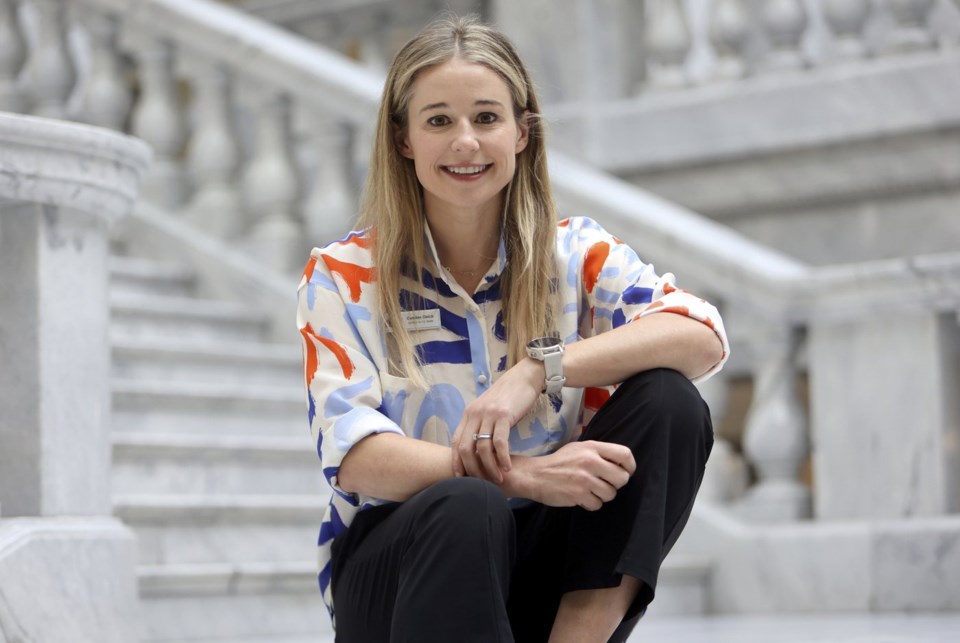PROVO, Utah (AP) — Utah voters are poised to decide whether a Republican representative or his lesser-known Democratic opponent will succeed Mitt Romney in the U.S. Senate.
U.S. Rep. John Curtis, the longest-serving member of Utah’s House delegation, is highly favored to win in a deep red state that has not elected a Democrat to the Senate since 1970. He is viewed as a moderate Republican in the manner of Romney but pledges to carve out his own brand of conservatism if elected.
Curtis faces Democrat Caroline Gleich, a mountaineer and environmental activist from Park City, who has tried to convince voters that her opponent is not as moderate as he might seem.
Both are vying to succeed one of Washington’s most prominent centrists and an outspoken critic of former President Donald Trump.
The candidates have often sparred over their differing approaches to climate change, a top issue for both.
Curtis, 64, is the founder of the Conservative Climate Caucus on Capitol Hill. The coalition pitches GOP alternatives to Democratic climate policies that Curtis says aim to lower emissions without compromising American jobs or economic principles.
During his seven years in Congress, Curtis has developed a reputation for pushing back against party leaders, such as Trump, who have falsely claimed that climate change is a hoax.
Gleich, 38, has accused Curtis of pandering to the fossil fuel industry and has criticized him for voting against proposals posed by Democrats that she said could have better protected public lands, air and water.
Moderate Republicans tend to prevail in statewide elections in Utah, as evidenced by Curtis’ win over a Trump-backed mayor in the June GOP primary.
Members of The Church of Jesus Christ of Latter-day Saints, who make up about half of the state’s 3.4 million residents, have been a reliably Republican voting bloc for decades. But many have been hesitant to embrace Trump and his allies, saying the former president’s brash style and comments about immigrants and refugees clash with their religious beliefs.
Polls statewide open at 7 a.m. and close at 8 p.m.
Hannah Schoenbaum, The Associated Press



